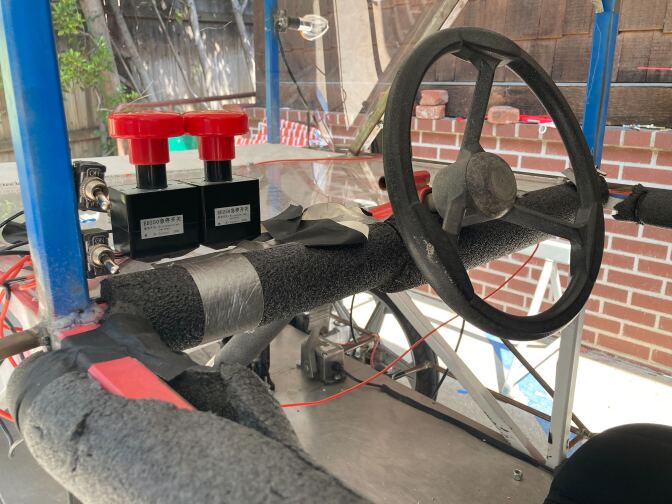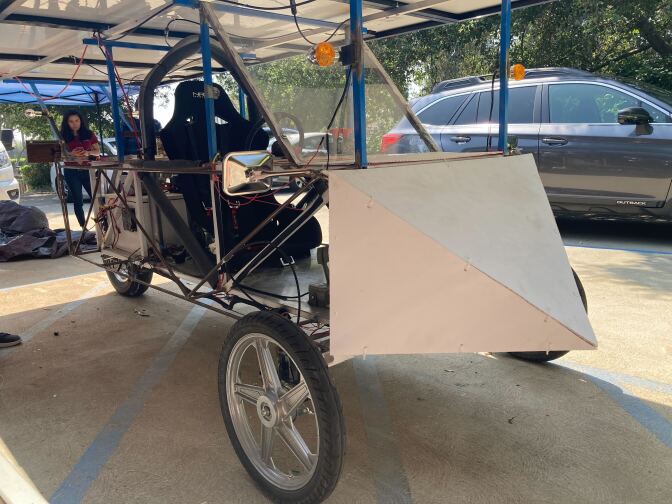This story is free to read because readers choose to support LAist. If you find value in independent local reporting, make a donation to power our newsroom today.
Pasadena Poly's Solar Car Team Sets Out For Multi-State Adventure

Picture this: a solar panel the size of a minivan roof welded to the top of a metal cage. Inside the cage, there's a single driver seat with a roll bar. Attached are two front wheels from a Surrey quadricycle— like the kind you can rent at the beach — and one rear wheel from a motorcycle whose drive chain is powered by an electric motor. The solar panel charges batteries in a box the size of an ice chest.

Clearly, this buggy is not built for looks, comfort or speed. But it is built for a unique competition.
It was constructed over two years by students at Polytechnic School in Pasadena, who leave for Texas on July 11 to compete in the 30th Annual Solar Car Challenge. The event bills itself as an education program designed to help motivate students in science, engineering, and alternative energy.

"I started the engineering club at Poly, during the pandemic actually," says team member Aria Wang. "So our first couple of meetings were over Zoom and we all decided that we wanted to compete at the Solar Car Challenge."
She is one of four drivers from the Poly Solar Team who'll be sun-powering their way from Fort Worth, Texas to Palmdale in the Antelope Valley along with 21 other high school teams, including Palmdale High School and Pacific Academy in Irvine.
The week-long race along highways, across four states, begins July 16. Portions of the route will require trailering the car, and it'll be under escort while it's being driven, because solar-powered driving is slow-going.
"We went to Willow Springs Racetrack out in the desert and we've seen that our car can run for about an hour at 20 MPH," says Julian Harrison. "And we're also expecting that we can charge for one-and-a-half hours thereafter to regain full capacity. They give us six hours a day to go drive the car and try to make it as far as we can. And really, we're expecting to be able to run 60 to 80 miles a day."
Harrison and Wang will take turns at the wheel with fellow recent Poly graduates Kai Herman and Jonah Goldstein.

Upon arrival at the Texas Motor Speedway, all the competing vehicles must first undergo a three-day process known as "scrutineering" (yes, that's a made-up word) in which the cars undergo safety inspections and testing.
"I'm really hoping right now that our car will pass that process and then we can start racing and I'll be pretty happy if we could get to like 100 or 200 miles in total," says Wang.
"Yeah," adds Harrison. "Hopefully we come back in one piece."







